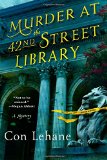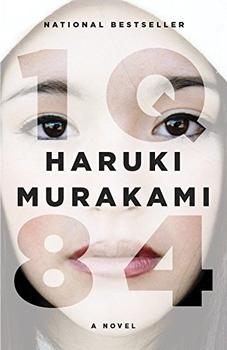Summary | Excerpt | Reviews | Beyond the book | Read-Alikes | Genres & Themes | Author Bio

The Changeling is probably a good book (and glowing reviews in various newspapers and magazines indicate that a number of critics think it is), but it is not for everyone, and it was not for me. The book is pulled along with a compelling plot that frequently startled me with its eerie twists and sharp revelations. The novel primarily concerns Kogito, a well-regarded Japanese writer, his wife, Chikashi, an artist, and Goro, Chikashi's brother and Kogito's childhood friend. The novel opens just after Goro has jumped to his death, and it seems at first that the ensuing action will seek to explain why he has committed suicide, but gradually the mysteries widen and extend backward in time. When Kogito and Goro were just boys and they disappeared for two days, what happened to forever change Goro upon his return?
I didn't actually realize at first that I was reading a suspense novel, but then I started to come across passages like this one, about Kogito's recurring health problems:
"In truth, though, the second, third, and fourth attacks of 'gout' were not due to the usual medical cause (that is, uric-acid accumulation), at all. The real reason was simply too bizarre to share. Every so often, three men would show up to punish him, and their mode of operation was always the same."
A passage like this would jolt me and recharge my interest in the book. But in between such passages, my interest flagged and I had to force myself through dense blocks of text in which a character, usually Kogito, confronts a piece of literature, reading it and applying it to his own life, but also remembering other times he'd read it, and which editions and translations he'd used, and what conversations he'd had about it at several different points in his maturation as a reader, and so on through many dizzying, sedimented layers of his inner thoughts. These passages are meant, in the words of one reviewer, to demonstrate "a conviction that literature has the power to transfigure and redeem reality." But they were often quite chronologically confusing, and they lacked the psychological realism that I have come to expect in contemporary literature.
Kogito's wife, for instance, finds a copy of Maurice Sendak's picture book, Outside Over There, in Kogito's luggage, and after a paragraph discussing the book's editors, when Kogito had previously read it, and how he came to have it in his suitcase, Chikashi finally reads the book and learns the concept of a "changeling." This, she thinks, describes what happened to her brother on that mysterious night in his boyhood. And in prose that couldn't be more leaden and expository, she wonders, "Why did I choose Kogito to be the father of the child I wanted to bring into the world as a means of retrieving the Goro who was taken away?" She has never understood why she married Kogito. "'But now,' Chikashi thought, 'An unexpected solution to that mystery has floated to the surface out of nowhere. When I tried using the Sendak book as a clue, I realized that deep down in my heart this is probably what I'd been feeling all along. Marrying this person, Kogito, was the same as flying out of the window at night in order to retrieve the real Goro.'" I dearly wanted to like the story of three passionately engaged readers making sense of their lives through books, but I simply couldn't connect with the novel in these passages.
Ultimately, I suspect that The Changeling is rather more fun to write about than to read, though I defer to readers more familiar with Oe's body of work and schooled in his formal style of writing for the final analysis.
![]() This review was originally published in The BookBrowse Review in March 2010, and has been updated for the
February 2011 edition.
Click here to go to this issue.
This review was originally published in The BookBrowse Review in March 2010, and has been updated for the
February 2011 edition.
Click here to go to this issue.

If you liked The Changeling, try these:

Murder at the 42nd Street Library
by Con Lehane
Published 2016
Murder at the 42nd Street Library opens with a murder in a second floor office of the iconic, beaux-arts flagship of the New York Public Library. Ray Ambler, the curator of the library's crime fiction collection, joins forces with NYPD homicide detective Mike Cosgrove in hopes of bringing a murderer to justice.

by Haruki Murakami
Published 2013
A love story, a mystery, a fantasy, a novel of self-discovery, a dystopia to rival George Orwell's - 1Q84 is Haruki Murakami's most ambitious undertaking yet.
Your guide toexceptional books
BookBrowse seeks out and recommends the best in contemporary fiction and nonfiction—books that not only engage and entertain but also deepen our understanding of ourselves and the world around us.